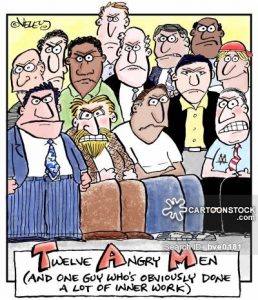Image this: You have the perfect campaign lined up, and are counting the days before you finally start paying off the cost of those ads.
Then, you receive an email from Amazon accusing you of copyright infringment. Your book has been taken down for now, until you prove it is, indeed, written by you.
This is what’s been happening to several authors, who have received the dreaded copyright notifications from Amazon. Specifically, they’ve received the following email:
Hello,
We are writing to you regarding the following book(s):
Title:[book title]
During a quality assurance review of your catalog, we found content (text and/or images) that is widely available on the web. You can do an online search for the content inside your books to discover which sites are offering the content for free. Copyright is important to us – we want to make sure that no author or other copyright holder has their work claimed and sold by anyone else.
As a result, the book(s) have been removed from sale from Amazon. If you wish to publish this content, please make updates to the books above and all similar books in your catalog and notify content-review@amazon.com with the following:
1. The URLs for all websites where this content is published
2. An explanation as to why the content is available onlineIf the books are in the public domain, please confirm this and include the information you used to make this determination. We may request additional information to confirm the public domain status.
For additional information, you can reference our Guide to Kindle Content Quality: https://kdp.amazon.com/help?topicId=A1MMQ0JHRBEINX&tag=pearseus-20
If any of your submissions fail to comply with our Content Guidelines, your account may be terminated or you may lose access to optional KDP services.
We appreciate your understanding.
Best regards,
Amazon KDP
The problem with this notification is that sometimes (though not always) Amazon takes down your book immediately. Which can come at an unfortunate time, like a book launch or in the middle of a big promo. It also seems to make no difference whether the book in question was found on a pirate site or a legitimate one. So, what are you to do?
Keep Calm And…
 One option is to opt for a DRM lock when you first publish your book. However, this takes pirates a couple of minutes to remove and can frustrate real readers. Also, you can’t un-DRM a book later on. So, I’d personally advise against it.
One option is to opt for a DRM lock when you first publish your book. However, this takes pirates a couple of minutes to remove and can frustrate real readers. Also, you can’t un-DRM a book later on. So, I’d personally advise against it.
Also, when launching a book, wait for a few days (I suggest up to a week) before you schedule any promos. That way, if you receive the dreaded copyright notification you won’t lose any promo money.
Victims of piracy can also ask for the pirated copy to be removed, through a take-down notice known as a Digital Millennium Copyright Act (DMCA) notice. Here’s a great link to get you up-to-speed on how and when to use a DMCA.
As a small consolation, if your book has been pirated on Kindle Direct Publishing, you may be able to claim the royalties from the pirated works.
Don’t bother contacting customer service for copyright issues; go directly to the legal department. Amazon provides an online form for filing a copyright infringement notice, or you can email your own DMCA notice to Amazon’s legal department, via copyright@amazon.com.
Within a few days, the issue should be resolved.
It’s Not Enough! I Want Their Head!
 If you’re in a fighting mood and want to fight piracy, you can get more proactive. Most pirate sites are hosted on at a hosting company but then re-distributed via CloudFlare, which is a service that hosts the content all over the world to make websites faster to load. Finding the real owners of the infringing websites can be tricky, but someone has already made a tool:
If you’re in a fighting mood and want to fight piracy, you can get more proactive. Most pirate sites are hosted on at a hosting company but then re-distributed via CloudFlare, which is a service that hosts the content all over the world to make websites faster to load. Finding the real owners of the infringing websites can be tricky, but someone has already made a tool:
https://www.crimeflare.com/cfs.html
If you enter the pirate site name into that site, you will get an IP address (eg 166.62.6.80). By typing into Google “Whois 166.62.6.80” you get information on who really hosts that website – e.g GoDaddy. You can then send your DMCA takedowns to abuse@godaddy.com and legal@godaddy.com (or the equivalent contact email addresses for abuse reports of the respective host).
Before you get carried away, though, make sure that your book is really there. Most pirate sites don’t actually have any books. They use programs (called bots or spiders) that crawl Amazon and merely copy book details, then claim to have the books so that you pass on your personal information – and maybe even dump some malware on your computer in the process.






I hope this is a rare occurrence. What a nightmare for anyone who has to jump through these hurdles.
It’s not frequent, thank goodness. Most of us will probably never see it 🙂
Wow, this is depressing. And so’s this comment. Sorry.
If it’s any consolation, most of us won’t need the info here 🙂
You mean there’s consolation somewhere? In PUBLISHING??
There, there… *pat pat*
As I am (hopefully) about to have my first Fiction book pub’d, I fear something like this happening.
Thank you for bringing this to my attention, and also to Philippa for sharing the petition.
A pleasure! Chances are you’ll never need the information here, but it’s good to have it just in case 🙂
I think there may be a couple of others things one can do. File a piracy complaint of the web site with Google and the other search engines. Also file a complaint with US Attorney General for breach of copyright laws once you get enough details to single out the guilty party.
Thanks for these suggestions, Tiffee. I guess most of us here are too small to spend too much time identifying the guilty party, who are usually non-US entities/persons anyway.
Thanks for sharing. I’ve now registered my upcoming book on the Library of Congress to give me peace of mind.
I should do that with my latest releases. Hmm…
That sounds like such a nightmare. At least there are recourses.
Nightmare indeed!
Great advice and contacts Nick. 🙂 I’ve had the copyright letter for my latest release, which found a load of poetry and fan-fic I’d published on a Tolkien forum over a long period. Luckily that was easily explained and I didn’t notice any makreting or sales blips, but it does put the fear of the gods into you while you’re searching around for the ‘evidence’.
Oh my! Thanks for sharing that 🙂
This will haunt my dreams for a while. Baffled on how one would even start proving that they’re the real owner. I usually copy write my books before publishing, but I’ve heard that doesn’t always work since it would only show the title and not the manuscript.
I’ve actually registered a few of my books with the Library of Congress. It costs some $25 and gives you peace of mind.
That $25-$35 can really put the mind at ease. Probably should check on the ones I have being processed.
Which reminds me, I haven’t done it in a while. Thanks for the reminder 🙂
You’re welcome. Just had to run over there to do a few myself.
This article about an open letter to Amazon seems to touch upon the issue above:
https://www.change.org/p/amazon-com-end-amazon-kdp-s-strike-first-ask-later-policy?recruiter=57811896&utm_source=share_petition&utm_medium=facebook&utm_campaign=autopublish&utm_term=mob-xs-no_src-no_msg
Thank you for sharing that, Philippa!
Thanks for the update, Nicholas! The whole process seems unsettling.
Let’s hope we never have to find out just how unsettling! 🙂
Scary stuff. But great resources, thank you!
I hope we never have to use them 🙂